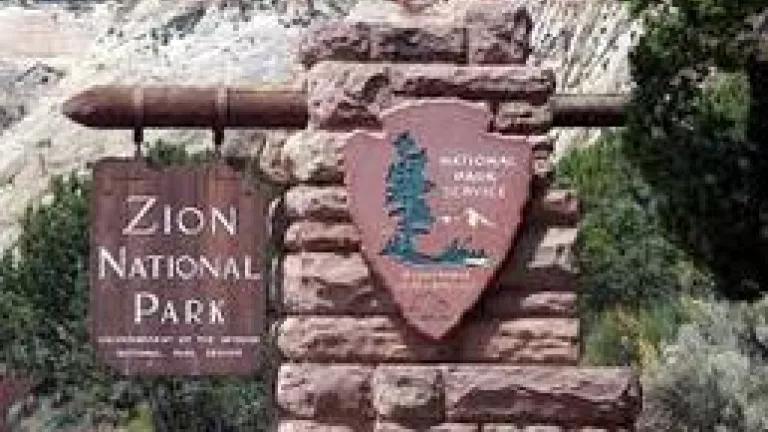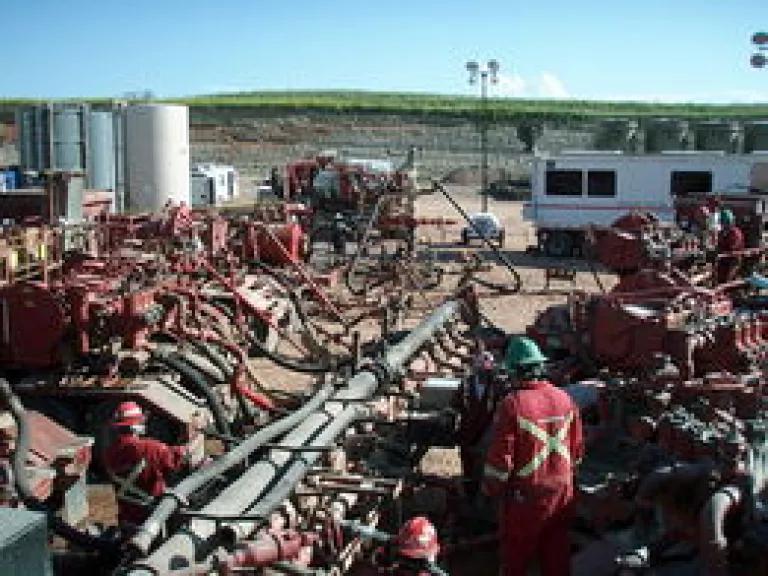
As the government shutdown continues, Congress fiddles while many outdoor recreation businesses burn through their cash reserves waiting for the National Parks and other federal lands to reopen for families, hunters, anglers and hikers. This was supposed to be a big weekend for many families to go out and grab the last few good days of the season, but for many businesses based near the parks, it’s a big zero.
Meanwhile, citizens seeking to give comment on important projects that could damage their communities don’t know if their voices are being heard, and around the country, federal attorneys are asking judges to freeze action on important legal cases that affect public health, safety and the environment.
The pundits say Congress is holding the budget hostage. But it’s really American families, communities and businesses that are being victimized. Congress should pass a budget and end this shutdown now.
The trout don’t mind

In Fort Smith, Montana, Steve Galletta of the Bighorn Anglers fly-fishing shop said the federal government shutdown could cost him $10,000 in lost business just this weekend, according to a story in the Billings Gazette. The National Park Service has blocked access to the Bighorn Canyon National Recreation Area, which attracts out-of-state fishermen looking to land trophy rainbow and brown trout on the Bighorn River. Galletta has been fielding calls from fishermen wondering whether the upper Bighorn — the most popular section of the stream – would be open. But last week, 8-foot-long concrete barriers blocked access to this stretch.
California land at risk from fracking, but citizens’ concerns may not be heard

In Hollister, California, citizens are unable to confirm that their opinions will be heard regarding hydraulic fracturing (“fracking”) on large swaths of California’s public lands. While the Bureau of Land Management’s Hollister field office was scheduled to take comments about the scope of an upcoming Environmental Impact Statement through last Friday, October 4, that process has stopped. Deadlines and timetables for similar public comment periods around the country have likewise been tossed into limbo. The risky oil and gas development being considered near Hollister would affect more than 280,000 acres of public land and has the potential to contaminate groundwater with acid and fracking fluid, degrade air quality, induce seismic activity, impair human health, and harm threatened and endangered species.
Shutdown blocks protection for whales, but not activities that harm them

Protection delayed by the shutdown is protection denied for thousands of endangered orcas, blue whales, humpbacks , sei whales, sperm whales, and Steller sea lions off the Northwest coast. In late September a federal court ruled, in a suit brought by NRDC, that the government violated the Endangered Species Act when it issued a permit to the Navy to use a California-sized training area in the Pacific extending from Washington’s border with Canada down to Northern California. The court’s ruling would have forced the government to reassess the permit to take into account the full scope of the potential harm to these magnificent mammals. However, that reassessment has been put on hold by the shutdown—while the Navy’s activities will continue. This means that endangered species will be harmed without a review of whether further protections are necessary.
photo credits: all from wikipedia
